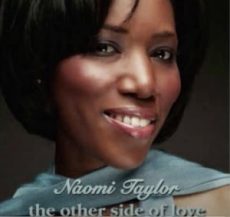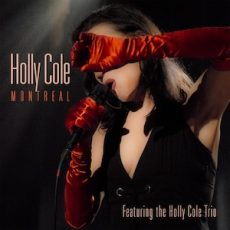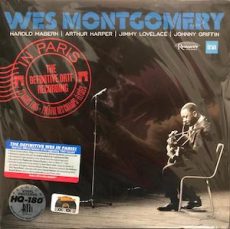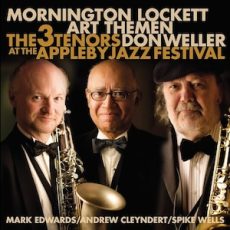
Daily Dose Of Jazz…
Naomi Taylor was born January 2, 1967 in Nassau, Bahamas and was the last of four girls born to missionary parents. Absorbed in gospel and classical music before she was able to talk at the tender age of six, her musical talents surfaced when she and her sisters performed as an “a cappella” quartet. Her rich alto/tenor blend and her ability to harmonize at such a young age came as a pleasant surprise to many. She discovered that she was able to pick up just about any musical instrument for the first time and play away, even though she was never taught.
With her musical talents growing, Naomi spent countless hours listening to singing quartets, captivated by the close harmony and often adding her own creative synchronization to compliment a tune. Her early singing career encompassed performances with various local choirs and musical groups, including The Bahamas National Youth Choir, the Renaissance Singers and Bel Canto.
She developed her musical talent under the mentorship of Mr. Cleophas Adderley. Though very talented, she shied away from solo performances, opting for singing within the security of a line-up or choir. Taylor sought out private lessons from pianist and vocal coach Lee Callender. This serendipitous meeting, then catapulted her into the world of jazz by reconnecting with bassist and bandleader Adrian D’Aguilar.
In 2008 she released her first recording The Other Side of Love, a compilation of warm and beautiful jazz standards. The recording features pianist Lou Rainone, saxophonist Ralph Munnings, percussionist Neil Symonette, bassist Adrian D’Aguilar and composer/guitarist Fred Ferguson.
Today, vocalist Naomi Taylor’s committed to jazz has her performing with Lee Calendar or Jazz Etcetera at the Oyster Bar in Nassau.
More Posts: bandleader,history,instrumental,jazz,music,vocal

Daily Dose Of Jazz…
Holly Cole was born November 25, 1963 in Halifax, Nova Scotia, Canada to a noted radio broadcasting father on the CBC Stereo network. Seeking a musical career, in 1983 she travelled to Toronto, Canada and three years later she founded a trio with bassist David Piltch and pianist Aaron Davis. It took two more years to get offered a record deal and in 1989 the Holly Cole Trio released an EP, Christmas Blues. The following year she released her debut album Girl Talk.
A succession of releases followed through the early 1990s covering r&b, blues, rock, country and show tunes with a jazz arrangement. In 1993 Holly’s hit single cover version of the Johnny Nash song I Can See Clearly Now earned a Juno Award nomination for Best Video and won a Juno Award for Best Contemporary Jazz Album, in 1994.
During the Nineties decade she appeared in film and television, releasing a track on the soundtrack of the Due South series. From 1993 to 1998 she recorded and released an album a year, took a break from recording, coming back in 2000 and recorded four more albums until 2007. In 2010, Cole contributed a track for the World Jazz For Haiti charity album.
In 2012 she got her original band back together again, added John Johnson on horns, guitarist Rob Piltch, Davide DiRenzo on drums and recorded a live album and dvd. She has been featured in several music specials which have rendered her multiple awards.
Vocalist Holly Cole, who has released 17 albums and received an honorary degree from Queen’s University in Kingston, Ontario, Canada, continues to perform and record.
More Posts: bandleader,history,instrumental,jazz,music,vocal

Requisites
Wes Montgomery in Paris: The Definitive ORTF Recording ~ Wes Montgomery | By Eddie Carter
Up next from the library is a live date by Wes Montgomery from 1965, previously available only on various labels and several bootleg copies. It finally received its first official release in 2017. Wes Montgomery in Paris: The Definitive ORTF Recording (Resonance Records HLP-9032) is a two-record set recorded during the guitarist’s only trip to the city during his European tour in conjunction with Ina France. This trip was a significant moment in Montgomery’s career, allowing him to showcase his talent to new audiences and reunite with Johnny Griffin (tracks: C1, C2, D1) on tenor sax. Harold Mabern on piano, Arthur Harper on bass, and Jimmy Lovelace on drums complete the ensemble. My copy is number 1085 of the 2017 U.S. Limited Edition Record Store Day Mono Audiophile album.
The quartet begins the set with Wes Montgomery’s Four-on-Six. They lay an impressive blueprint in a lively melody, and Wes gets down to business in a dazzling opening statement. Harold meets the challenge with an aggressive interpretation preceding the group’s return to the reprise and close. Impressions by John Coltrane takes the foursome into the stratosphere during the speedy melody. Wes launches into an extended opening statement that races rapidly before Harold takes over for a furiously swinging interpretation, while Arthur and Jimmy keep it moving into the theme’s restatement and climax.
The tempo comes down for The Girl Next Door, a pretty ballad by Hugh Martin and Ralph Blane. Wes’s unaccompanied introduction is as warm as a soft summer breeze, leading to the quartet’s lovely theme. The rhythm section lays a lush accompaniment for the guitarist’s sultry solo showcase, which will touch your heart into an enchanting ending. Here’s That Rainy Day by Jimmy Van Heusen and Johhny Burke begins the second side with a Latin-tinged introduction to the ensemble’s opening chorus. Wes takes the lead and gives an exciting solo to get the listener’s toes up and dancing. Harold continues the infectious enthusiasm in the second reading before the closing chorus.
Jingles by Wes Montgomery opens with the quartet’s spirited introduction and melody. The guitarist heads out of the gate at full speed. Harold comes right behind him to give an energetic interpretation. Wes and Jimmy get together to share a lively conversation next, and then Jimmy gets the last word before the theme returns. To Wane, Harold Mabern’s tribute to Wayne Shorter comes to life with the pianist’s lively introduction; then, the quartet sets a swinging groove on the melody. Wes is up first and works his magic on the opening statement. Harold completes the solos with a real burner, preceding the reprise and climax.
The foursome becomes a quintet with the addition of Johnny Griffin to start side three. Full House by Wes Montgomery begins with the ensemble easing the melody’s throttle. Wes kicks off the solos with bluesy lines of good-hearted swing; then, Johnny showcases his energy next in a joyous performance before the theme returns amid a thunderous ovation. ‘Round Midnight by Thelonious Monk, Bernie Hanighen and Cootie Williams begins with Harold’s tender introduction segueing into Wes’s haunting melody. Johnny begins the opening interpretation gracefully; Wes follows with a solo as enjoyable as the warmth from the fireplace before the quintet softly carries the song out.
Blue ‘N Boogie by Dizzy Gillespie and Frank Paparelli begins side four with the quintet’s brisk theme, and then Wes catapults into the first spicy performance. The highlight is when Johnny takes over for an extended solo, with an unaccompanied run into the quintet’s finale. The guitarist’s theme, West Coast Blues, follows, allowing the leader to introduce his bandmates to the crowd. The quartet returns for the set’s finale, Twisted Blues by Wes Montgomery, which the group begins slowly. Wes picks up the beat and swings effortlessly in the opening solo. Harold makes a stylish impression next, and then Arthur gets to solo last, creating an absolute jewel preceding Wes’s return for the finish.
André Francis produced the original recording, Zev Feldman produced this audiophile release, and Office de Radiodiffusion-Télévision Française (ORTF) made the original recording. George Klabin and Frank Gala restored the sound, and Bernie Grundman mastered the album. The album’s sound quality is impeccable, with an excellent soundstage that will transport the listener to the Théâtre des Champs-Élysées audience as if the performance is taking place right in front of them. The records are pressed on 180-gram vinyl and are silent until the music starts. Also included in this two-record set is an eight-page booklet with rare photos by Jean-Pierre Lenoir, essays and interviews and six collector postcards.
The 2017 audiophile album was a limited edition of three thousand, but it is one of the best releases that will reward your detective work in finding a copy. Wes Montgomery in Paris: The Definitive ORTF Recording is, in my opinion, Wes’s best live album, capturing the essence of his unique style and virtuosity. This is the most authoritative and comprehensive recording of Montgomery’s performance from the French radio and television broadcaster. It’s an outstanding record with a superb supporting cast that I’m proud to have in my jazz library. If you’re also a Wes Montgomery fan or enjoy jazz guitar, it should be seriously considered for a spot in yours!
~ Here’s That Rainy Day, ‘Round Midnight – Source: JazzStandards.com
© 2024 by Edward Thomas Carter
More Posts: choice,classic,collectible,collector,guitar,history,instrumental,jazz,music

Daily Dose Of Jazz…
Mornington Edward Lockett was born in Stepney, London, United Kingdom on November 19, 1961. He began playing clarinet at the age of 14 while he was a student at Cowes High School, then switched to tenor saxophone. He studied at Dartington College of Arts, graduating in 1981, then undertook further study at the Guildhall School of Music and Drama in 1984–85, under the tutelage of Lionel Grigson.
In the Eighties and ‘90s Lockett played in the bands of Jim Mullen, Ronnie Scott, Arturo Sandoval, Ian Shaw, and Andrea Vicari. During the mid ‘90s into the new century he performed with Martin Drew, Stan Tracey, Don Weller, Sarah Jane Morris, and Jimmy Smith, to name a few.
In February 1996, Mornington’s album Late Night Sax: After Dark reached No. 18 in the UK Albums Chart. From 2000 until 2004 he was involved in a group co-led by Martin Drew called Celebrating The Jazz Couriers. They played the music of Ronnie Scott and Tubby Hayes and won the British Jazz Award for Best Small Group in 2002. The band was reformed in 2004 as The New Jazz Couriers.
In 2008 in conjunction with fellow tenor saxophonists Art Themen and Don Weller, Lockett released the album The 3 Tenors at the Appleby Jazz Festival.
As an educator he now works at St. Paul’s Girls’ School, and the Royal College of Music in London, teaching jazz saxophone and improvisation. He has taught at Trinity College of Music, Leeds College of Music and has been a visiting tutor at the Dordogne Jazz Summer School.
He led a monthly residency at the 606 Club in Chelsea with saxophonist Peter King until a year before King’s death. Tenor saxophonist Mornington Lokett has since run an annual tribute, the Peter King Memorial Sax Summit. Invited guests have been saxophonists Graeme Blevins, Simon Allen and Alex Clarke, among others.
More Posts: bandleader,history,instrumental,jazz,music,saxophone

Requisites
Swiss Movement ~ Les McCann and Eddie Harris | By Eddie Carter
This morning’s record from the library is an exceptional live album by Les McCann and Eddie Harris. They performed a spontaneous concert at the 1969 Montreux Jazz Festival. Their set, which became the highlight of the three-day event, was a testament to the quintet’s exceptional musicianship. Swiss Movement (Atlantic SD 1537) immortalizes this incredible performance. The ensemble consists of Benny Bailey on trumpet, Eddie Harris on tenor sax, Les McCann on piano, Leroy Vinnegar on bass and Donald Dean on drums. My copy is the original 1969 U.S. Stereo release.
The opener, Compared To What by Gene McDaniels, is a poignant reflection of the sentiments of many Americans towards the Vietnam War and the President of the United States. McCann’s vocals, which delve into the pressing issues of the time, add a layer of historical significance to the song. Les starts things with a spirited introduction, setting the stage for a lively dialogue when Donald joins in. Leroy and Eddie add to the jubilant theme with McCann’s vibrant vocal choruses. Benny follows with a zestful solo, and Les returns for another round of swinging. He then lets his fingers do the talking with exhilarating energy. Eddie takes the performance to a whole new level next, leading to an electrifying climax, the audience’s thunderous applause, and McCann’s quintet introduction.
Cold Duck Time by Eddie Harris slows the pace to medium speed, opening with Les McCann’s introduction to the crowd. Leroy and Donald build the song softly to the quintet’s relaxing theme. Eddie starts the soloing with a nice, easygoing groove. Benny delivers the following solo with thoughtful construction and captivating lines. Les ends with a contagious swing on the closer, which cooks to the finale. Kathleen’s Theme by Les McCann ends the first side with Harris leading a quartet performance. Eddie delivers a feisty reading with a spirited momentum fueled by the rhythm section’s groundwork, which receives a well-deserved ovation from the Montreux audience at its conclusion.
Les McCann’s You Got It In Your Soulness opens Side Two with the trio’s festive introduction to Les scatting along in the background of the melody. He continues taking care of business on the first solo. Eddie launches a funky, firm-toned attack next. Benny responds with energetic verses in the following reading, and Les puts the exclamation point on the solos with intense heat, which glows brightly into the close. The Generation Gap by Les McCann starts with the trio’s introduction and melody. Eddie begins with a velvety, smooth opening statement. Les delivers a stimulating workout before the trio’s gentle ending.
Nesuhi Ertegün and Joel Dorn produced Swiss Movement, and French recording engineer Pierre Grandjean crafted the album with meticulous diligence to detail. The album boasts an excellent soundstage with a “you are there” feeling, immersing the listener in the Montreux Jazz Festival audience as the group performs. The record is also quiet until the music begins. As for the music itself, Swiss Movement by Les McCann and Eddie Harris is a testament to the highest standards of jazz, a live performance that rocked the house that night and continues to captivate audiences today. If you’re a soul jazz or post-bop fan, it’s a must-have for your library!
~ Compared To What – Source: Wikipedia.org
© 2024 by Edward Thomas Carter
More Posts: choice,classic,collectible,collector,history,instrumental,jazz,music,piano,saxophone



